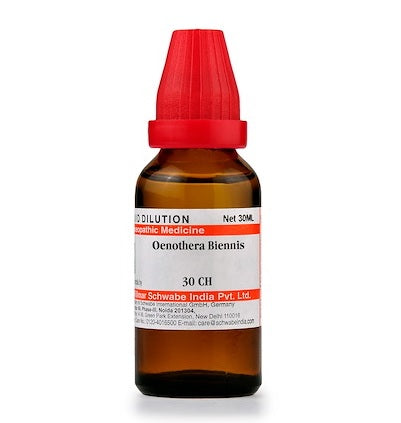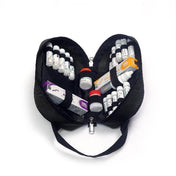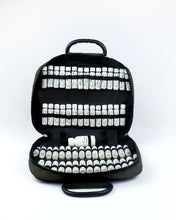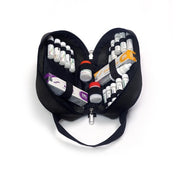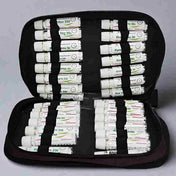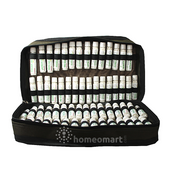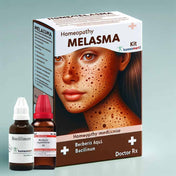Oenothera Biennis Homeopathy Dilution 6C, 30C, 200C, 1M, 10M
Oenothera Biennis Homeopathy Dilution 6C, 30C, 200C, 1M, 10M - Schwabe / 30 ML 30C is backordered and will ship as soon as it is back in stock.
Couldn't load pickup availability
Description
Description
About Oenothera Biennis Homeopathy Dilution
Also known as evening primrose. Has anodyne, anticoagulant and anti depressant properties. Contains Linoleic acid, Omega 6 fatty acids, Caffeic acid, Bita sitosterol and Amino acids.
It is clinically used in Hypoglycemia, Asthma, Lupus, cholera, Ovulation pain and diarrheal diseases. It is given for effortless diarrhea which is exhausting with nervous weakness.
- Head: Head feels light. There is vertigo with swimming sensation. Dizziness feeling with weakness of limbs and fluttering of heart which is relieved by stool and urine.
- Abdomen: There are cramps in abdomen and limbs with twisting pain.
- Stool: The desire to pass stool is increased. The stool is copious, consistent and passed without pain and effort.
- Urine: There is urgent desire to urinate and passed without effort. The urine is light colored and bland.
Dosage: Please note that the dosage of single homoeopathic medicines varies from drug to drug depending upon the condition, age, sensitivity and other things. In some cases they are given as regular doses as 3-5 drops 2-3 times a day whereas in other cases they are given only once in a week, month or even in a longer period. We strongly recommend that the medication should be taken as per the physician's advice.
Dr.Reckeweg states Oenothera Biennis regulates sugar metabolism. It is used in its R86 hypoglycemia drops.
Dr. K S Gopi recommends Oenothera Q – “Lowers the level of cholesterol in aorta and liver.Tincture 10 drops three times daily for three months”
As per NCBI Glucose and lipid metabolism are linked to each other in many ways. Glucose metabolism can be impaired by defects in insulin secretion or from defects in cellular sensitivity to insulin. Elevated sugar levels results in lower “good” cholesterol, or high-density lipoprotein (HDL). Insulin resistance is considered a precursor to pre-diabetes and type 2 diabetes.

